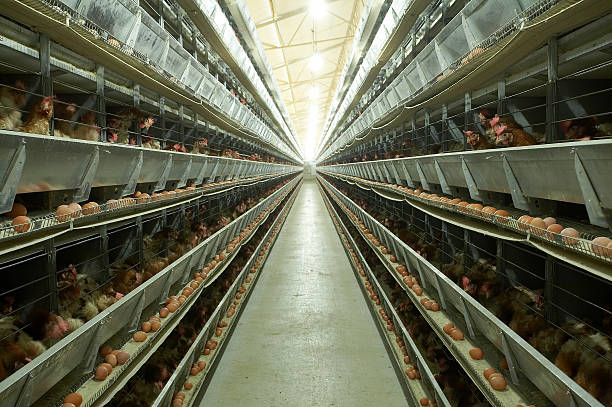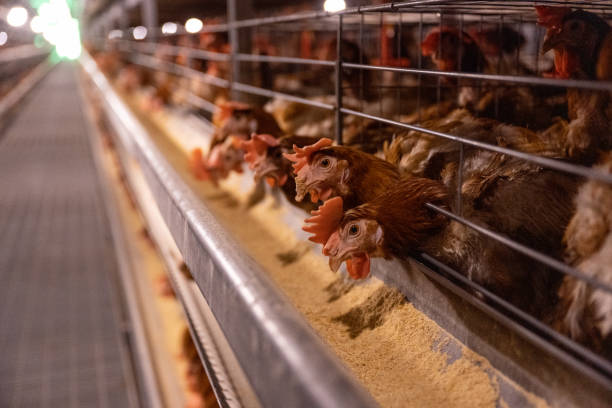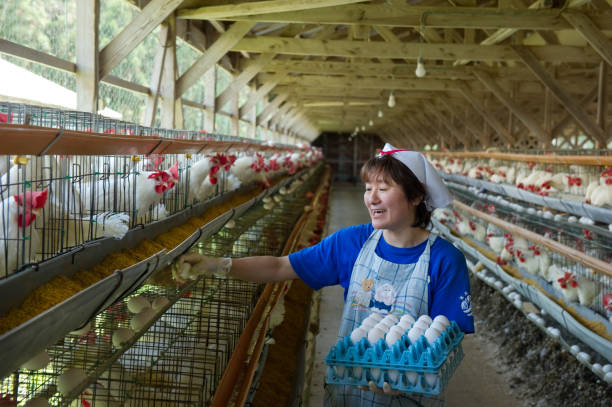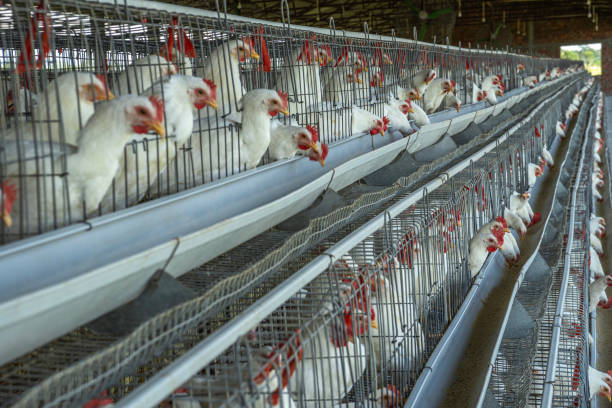
Cost-Effective Open House Battery Cage Systems for Poultry Farmers in Africa
Cost-Effective Open House Battery Cage Systems for Poultry Farmers in Africa
Africa’s poultry industry is experiencing rapid growth, driven by increasing population and rising demand for poultry products. As such, poultry farmers are constantly seeking innovative and cost-effective solutions to enhance their productivity and profitability. Among the various options available, open house battery cage systems have emerged as a promising solution, particularly for small and medium-sized poultry farmers. This article explores the benefits, key considerations, and practical aspects of implementing cost-effective open house battery cage systems for poultry farmers in Africa.
**Understanding Open House Battery Cage Systems**
An open house battery cage system refers to a poultry housing system where chickens are raised in multiple tiers of cages within an open-sided structure. These structures are typically made of metal frames and wire mesh, providing ventilation and natural light. The open design allows for natural airflow, reducing the need for expensive climate control systems.
**Benefits of Open House Battery Cage Systems**
* **Cost-Effectiveness:** Open house battery cage systems are generally more affordable than enclosed, environmentally controlled houses. The use of natural ventilation and lighting significantly reduces energy consumption and operational costs.
* **Increased Productivity:** Battery cage systems allow for higher stocking densities compared to traditional floor systems, meaning more birds can be housed in the same area. This results in increased egg production per unit area.
* **Improved Hygiene:** Cages separate the birds from their manure, reducing the risk of disease transmission and improving overall hygiene. This leads to healthier birds and lower mortality rates.
* **Ease of Management:** Battery cage systems simplify poultry management tasks such as feeding, watering, and egg collection. This reduces labor costs and allows farmers to focus on other critical aspects of their operation.
* **Enhanced Egg Quality:** Eggs laid in cages are cleaner and less likely to be contaminated with bacteria, resulting in higher quality eggs that command premium prices in the market.
* **Better Monitoring:** The cage system makes monitoring the birds easier, so farmers can quickly detect any signs of illness or distress and take appropriate action. This helps in reducing losses due to disease.
**Key Considerations for Implementing Open House Battery Cage Systems**
Before investing in an open house battery cage system, poultry farmers in Africa should carefully consider the following factors:
* **Climate:** Open house systems are best suited for regions with mild to moderate climates. In areas with extreme temperatures, supplemental heating or cooling may be necessary to maintain optimal bird comfort.
* **Predator Control:** Open-sided structures are vulnerable to predators such as wild dogs, snakes, and birds of prey. Farmers must implement effective predator control measures such as fencing, netting, and guard animals.
* **Biosecurity:** Maintaining strict biosecurity protocols is essential to prevent the introduction and spread of diseases in open house systems. This includes controlling access to the farm, disinfecting equipment, and vaccinating birds.
* **Ventilation:** Adequate ventilation is crucial for removing ammonia and moisture from the house, maintaining air quality, and preventing respiratory problems. Farmers should ensure that the house is properly oriented to maximize natural airflow.
* **Cage Design and Quality:** The design and quality of the battery cages directly impact bird welfare, productivity, and durability. Farmers should choose cages made from high-quality materials with adequate space, proper flooring, and easy access to feed and water.
* **Manure Management:** Proper manure management is essential for preventing odor problems and environmental pollution. Farmers should implement a system for collecting, storing, and disposing of manure in an environmentally friendly manner. This could include composting or anaerobic digestion.
* **Water Supply:** A reliable source of clean water is essential for the health and productivity of the birds. Farmers should ensure that they have adequate water storage capacity and a well-maintained watering system.
* **Feed Management:** Efficient feed management is critical for optimizing bird performance and minimizing feed costs. Farmers should use high-quality feed, provide adequate feeder space, and monitor feed consumption closely.
* **Local Regulations:** Farmers should be aware of and comply with all local regulations regarding poultry farming, including zoning laws, environmental regulations, and animal welfare standards.
**Practical Aspects of Implementing Open House Battery Cage Systems**
* **Site Selection:** Choose a site that is well-drained, accessible, and away from residential areas. The site should have access to electricity and a reliable water source.
* **Housing Construction:** Build a durable and well-ventilated open-sided structure using locally available materials. The house should be oriented to maximize natural airflow and minimize exposure to direct sunlight.
* **Cage Installation:** Install battery cages according to the manufacturer’s instructions, ensuring adequate spacing between cages and rows. The cages should be level and securely anchored to the floor.
* **Equipment Selection:** Choose high-quality feeders, drinkers, and egg collection systems that are easy to clean and maintain. Automatic systems can reduce labor costs and improve efficiency.
* **Bird Selection:** Select healthy, disease-free chicks from a reputable hatchery. Choose breeds that are well-suited to the local climate and market conditions.
* **Feeding Program:** Implement a balanced feeding program that meets the nutritional needs of the birds. Provide fresh feed and water at all times.
* **Health Management:** Implement a comprehensive health management program that includes vaccination, parasite control, and regular monitoring of bird health. Consult with a veterinarian regularly.
* **Manure Management:** Collect and dispose of manure regularly to prevent odor problems and environmental pollution. Consider composting or anaerobic digestion to convert manure into valuable fertilizer or biogas.
* **Record Keeping:** Keep detailed records of egg production, feed consumption, mortality rates, and other important data. This information can be used to identify problems and make informed management decisions.
* **Training and Education:** Provide training and education to farm workers on proper poultry management practices, including feeding, watering, health management, and biosecurity.

**Cost-Effective Strategies for Implementing Open House Battery Cage Systems**
* **Use Local Materials:** Utilizing locally sourced materials for construction can significantly reduce costs. Explore options such as locally milled lumber, bamboo, and recycled materials.

* **DIY Construction:** If feasible, consider building the open house structure yourself or hiring local builders. This can save money on labor costs.
* **Second-Hand Equipment:** Explore the possibility of purchasing used battery cages and equipment. This can be a cost-effective way to get started, but ensure the equipment is in good working condition.
* **Government Subsidies and Grants:** Research available government subsidies and grants for poultry farmers. These programs can provide financial assistance for purchasing equipment and improving infrastructure.
* **Cooperative Purchasing:** Join or form a cooperative with other poultry farmers to purchase feed, equipment, and other inputs in bulk. This can result in significant cost savings.
* **Energy-Efficient Practices:** Implement energy-efficient practices such as using solar power for lighting and pumping water. This can reduce energy costs and improve sustainability.
* **Optimize Feeding Strategies:** Optimize feeding strategies to minimize feed waste and improve feed conversion efficiency. This includes using proper feeder design, monitoring feed consumption, and adjusting feed rations based on bird age and production stage.
* **Preventative Health Management:** Focus on preventative health management to reduce the incidence of disease and mortality. This includes vaccination, biosecurity, and proper sanitation.
* **Direct Marketing:** Consider selling eggs directly to consumers or local businesses. This can eliminate the middleman and increase profits.
* **Value-Added Products:** Explore the possibility of producing value-added products such as processed eggs or poultry meat. This can increase revenue and diversify your income streams.
**Challenges and Solutions**
While open house battery cage systems offer numerous benefits, poultry farmers in Africa may face certain challenges:
* **Disease Outbreaks:** Open house systems are more susceptible to disease outbreaks due to the lack of environmental control.

* **Solution:** Implement strict biosecurity protocols, vaccinate birds regularly, and monitor bird health closely.
* **Predator Attacks:** Open-sided structures are vulnerable to predator attacks.
* **Solution:** Implement effective predator control measures such as fencing, netting, and guard animals.
* **Extreme Weather:** Open house systems may not be suitable for regions with extreme weather conditions.
* **Solution:** Provide supplemental heating or cooling during extreme temperatures. Consider using insulated roofing and walls to improve temperature control.
* **Market Fluctuations:** Egg prices may fluctuate due to seasonal demand and competition.
* **Solution:** Diversify your income streams by producing value-added products or selling eggs directly to consumers.
**Conclusion**
Open house battery cage systems offer a cost-effective and efficient solution for poultry farmers in Africa to increase their productivity and profitability. By carefully considering the key factors discussed in this article and implementing practical strategies, farmers can overcome the challenges and reap the benefits of this technology. As the poultry industry in Africa continues to grow, open house battery cage systems have the potential to play a significant role in meeting the rising demand for poultry products and improving the livelihoods of poultry farmers. Thorough research, careful planning and a commitment to best practices will lay the foundation for a successful and sustainable poultry operation. With the right knowledge and resources, African poultry farmers can thrive and contribute to the region’s food security.
